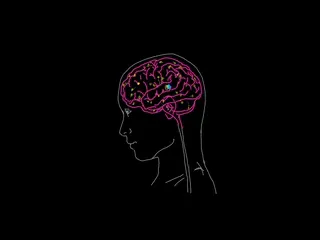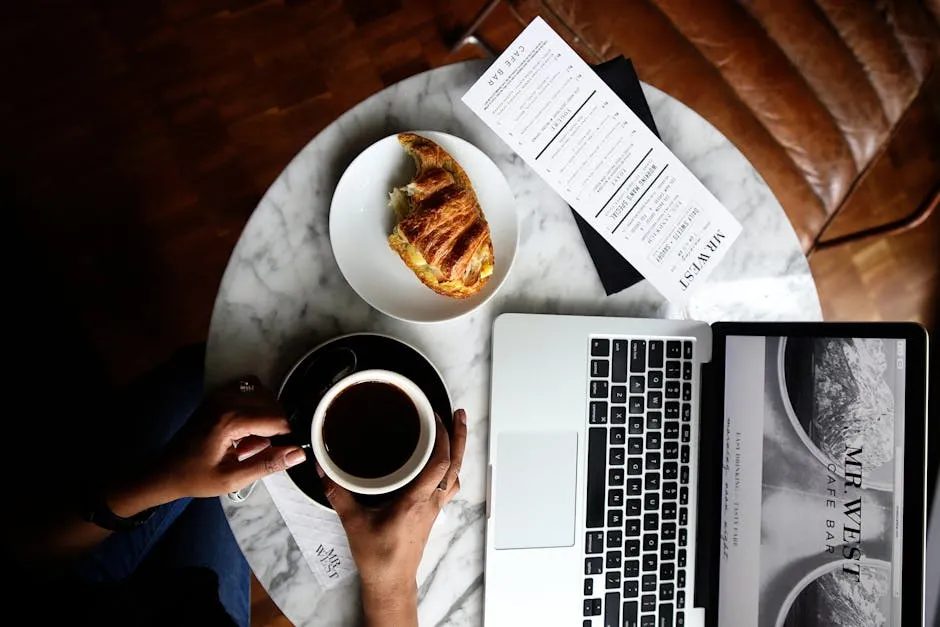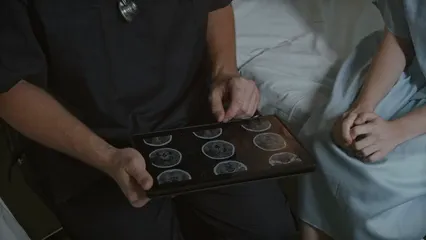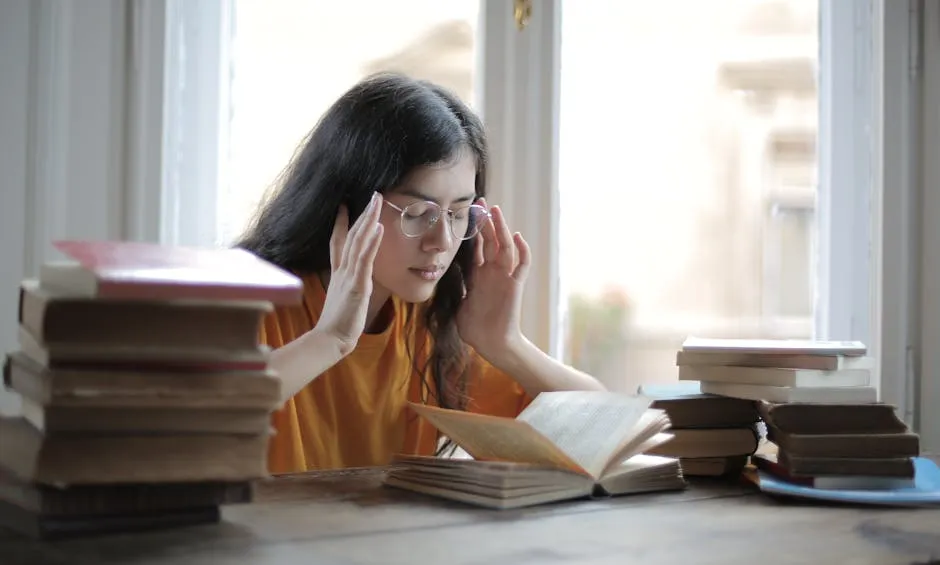
Why Do We Get Déjà Vu and What Causes This Feeling?
Introduction
Déjà vu is one of those peculiar experiences that leave us scratching our heads. You know that feeling when you walk into a room and think, “Huh, I’ve been here before,” even though you haven’t? You’re not alone! This strange sensation is common, yet it remains shrouded in mystery. Most folks agree that déjà vu involves a disconcerting sense of familiarity with a situation you know has never happened to you.
Researchers estimate that between 60% to 97% of people experience déjà vu at least once in their lives. While usually harmless, this phenomenon can sometimes lead us to wonder why it occurs and what it means. In this article, we’ll break down the various theories that attempt to explain déjà vu, its potential causes, and when these fleeting moments might indicate something more serious. So, buckle up as we journey through the twists and turns of our memories!

Speaking of journeys, if you’re looking to enhance your experience while diving into the world of psychology and memory, consider picking up Déjà Vu: A History of the Mind by Dr. Richard J. McNally. This book explores the intricate workings of the mind and might just shed some light on those perplexing déjà vu moments!
Understanding Déjà Vu
What is Déjà Vu?
Déjà vu, pronounced day-zhah voo, translates from French to “already seen.” It represents that eerie feeling of having experienced something before, even when logic tells you otherwise. Imagine walking down a new street and suddenly feeling as if you’ve strolled down that very path before. It’s a sensation that can send chills down your spine or spark a lighthearted chuckle.
Research shows that déjà vu is surprisingly prevalent. Estimates indicate that anywhere from 60% to a staggering 97% of people report having experienced it at least once. Interestingly, young adults, particularly those aged 15 to 25, are most affected. This age group frequently encounters this phenomenon, making one wonder if keeping up with the latest TikTok dances is somehow triggering all that déjà vu!
To delve deeper into the fascinating world of memory and its quirks, you might want to check out The Brain That Changes Itself by Norman Doidge. It’s a captivating read that reveals how our brains can adapt and rewire themselves, shedding light on why we might feel like we’ve been somewhere before!

So, what’s going on in our brains during these strange moments? The exact cause of déjà vu remains elusive, but theories abound. Some suggest it’s related to memory processing glitches, while others link it to temporal lobe activity. The brain is a fascinating, complex organ, and déjà vu offers a unique glimpse into its workings. While we might not have all the answers just yet, exploring this phenomenon is sure to spark curiosity and maybe even a laugh or two along the way!
How Does Déjà Vu Feel?
Déjà vu feels like a brain hiccup. You’re in a new place, yet it seems oddly familiar. It’s that jarring sensation when reality clashes with memory. Unlike other forms of memory recall, déjà vu doesn’t just whisper, “Hey, remember this?” It shouts, “You’ve done this before!” But your mind knows you haven’t.
Dr. Jean Khoury, a neurologist, describes it as “an impression of familiarity with a present experience that feels misplaced.” It’s that uncanny moment when your brain tricks you into believing you’ve relived the moment. “Your brain creates a sensation as if you have lived a certain situation before,” Dr. Khoury explains, “but you’re unable to retrieve it from your memory.”
For those interested in understanding the psychological aspects of our experiences, consider exploring The Power of Habit by Charles Duhigg. This book dives into why we do what we do, and it might just help you understand those puzzling déjà vu moments a bit better!

Dr. Akira O’Connor adds another layer of intrigue. He notes, “Déjà vu is basically a conflict between the sensation of familiarity and the awareness that the familiarity is incorrect.” It’s like a mental tug-of-war, leaving you bemused and amused all at once.
In essence, déjà vu feels like your brain is playing a prank on you. You’re left wondering if you’re stuck in a time loop, laughing at the absurdity of it all. Who knew memory could be so cheeky?
Delayed Processing Theory
The brain is a complex machine, sometimes a bit too slow on the uptake. Imagine you walk into a café, and suddenly it feels like you’ve sipped that latte before. That’s where the delayed processing theory struts in. This theory suggests that information from our experiences travels along two different routes in the brain. One route gets there faster than the other, creating a bit of a time lag.
When the second wave of information finally arrives, your brain mistakenly interprets it as a past experience. So, what feels familiar is merely a trick of timing! Research supports this theory. A study found that when one part of the brain processes sensory input quicker than another, it can result in that eerie feeling of déjà vu. It’s like your brain just hit the snooze button on reality!

Memory Recall and Implicit Memory
Now let’s talk about implicit memory. This is the sneaky sidekick that can trigger déjà vu without you even realizing it. Implicit memory stores experiences we can’t consciously recall. You might see a street corner that resembles one from your childhood and, bam! You feel a wave of familiarity, even if you can’t pinpoint why.
Anne Cleary, a cognitive psychology wizard, conducted experiments that induced déjà vu in controlled environments. Participants were shown scenes that bore subtle similarities to previous ones they had encountered. Remarkably, they reported feelings of déjà vu when they saw those familiar elements, despite not remembering the original context. It’s like your brain is playing hide and seek with your memories!
For those who want to sharpen their memory skills, check out The Memory Book by Harry Lorayne. It’s packed with tips and tricks that can help you boost your memory and possibly reduce those déjà vu moments!

Other Explanations
Besides the brain’s inner workings, cultural perceptions of déjà vu add an interesting twist. Some cultures interpret this sensation as a psychic phenomenon, while others view it simply as a quirky brain glitch. Fascinatingly, research indicates that French speakers often find déjà vu more unsettling than English speakers. It seems that even language shapes our experiences!
Gender differences also come into play. Studies suggest that men and women may experience déjà vu differently, with variations in frequency and interpretation. Cultural context and personal beliefs influence how people experience this phenomenon. So, whether you chalk it up to a brain slip or a mysterious psychic event, déjà vu keeps us guessing!

When Déjà Vu May Be a Cause for Concern
Typical vs. Problematic Déjà Vu
Déjà vu is typically a fleeting, harmless experience. You might feel it occasionally, like when you walk into a café and think, “I’ve definitely been here before!” Most people will experience this sensation a few times a year. However, some individuals encounter déjà vu more frequently. If you find yourself feeling this way more than once a month, it might be time to pay attention.
So, when should you seek medical advice? If déjà vu is accompanied by other symptoms, like confusion, loss of consciousness, or intense emotional fluctuations, don’t ignore it. Remember, it’s essential to listen to your body. If something feels off, it might be worth a check-up with your healthcare provider.

Medical Conditions Linked to Déjà Vu
Frequent déjà vu can sometimes point to underlying medical conditions. One of the most notable is temporal lobe epilepsy. During seizures, individuals might experience intense déjà vu sensations. This happens because the temporal lobe, responsible for memory and recognition, misfires, leading to a false sense of familiarity.
Migraines can also trigger déjà vu. Some people report experiencing the sensation right before or during a migraine attack. That’s right—your brain might be throwing a little surprise party for you, complete with déjà vu!
For anyone looking to manage migraines, a good health tracker can be invaluable. Consider the Fitbit Charge 5 Health and Fitness Tracker. It can help you monitor your health and potentially identify triggers that lead to those pesky migraines!

Anxiety disorders can play a role too. Those who experience elevated stress levels may find that déjà vu becomes more frequent. Stress can affect memory retrieval, creating that uncanny sense of familiarity.
Experts recommend that anyone grappling with frequent déjà vu should consider discussing it with a neurologist or mental health professional. They may suggest keeping a journal to track episodes and accompanying symptoms. This information can be invaluable for diagnosing any potential issues.
In conclusion, while déjà vu is generally harmless, awareness is key. If you experience it often or alongside other unusual symptoms, don’t hesitate to seek advice. Your brain deserves some TLC!
Conclusion
Déjà vu is a captivating phenomenon that many of us experience, leaving us bewildered and curious. We’ve explored its various potential causes, from minor brain circuit malfunctions to intriguing memory processing theories. Despite being a harmless occurrence for most, it’s essential to remain vigilant. If déjà vu becomes frequent or is accompanied by other unusual symptoms, it might signal an underlying health issue.
Remember, while déjà vu adds a sprinkle of mystery to our lives, it’s usually just a quirky brain glitch. We can enjoy these fleeting moments of familiarity without worry—unless they start to interfere with our daily lives. If you want to explore more about mindfulness and how it can help with stress management, check out Mindfulness: An Eight-Week Plan for Finding Peace in a Frantic World by Mark Williams. It might just help you navigate those moments of déjà vu with more ease!

FAQs
What is the difference between déjà vu and déjà vécu?
Déjà vu and déjà vécu are two terms often used interchangeably, but they describe distinct experiences. Déjà vu, meaning “already seen,” refers to the sensation of feeling that a current situation is familiar, despite knowing it hasn’t occurred before. In contrast, déjà vécu, or “already lived,” describes the sensation of reliving an experience that feels intensely real, often accompanied by specific details. While déjà vu is more common, déjà vécu can be more intense and often occurs in individuals with certain neurological conditions.
Can déjà vu be induced?
Yes, déjà vu can be induced under specific conditions. Researchers have successfully triggered déjà vu in laboratory settings. For instance, cognitive psychologist Anne Cleary has used virtual reality to create environments with familiar layouts, leading participants to report feelings of déjà vu. Additionally, stress, fatigue, and even hypnosis can heighten the likelihood of experiencing déjà vu. However, it remains an elusive sensation in everyday life, making it difficult to reproduce on command.
Is déjà vu a sign of a neurological condition?
While déjà vu is typically harmless, it can sometimes indicate neurological conditions, particularly if experienced frequently. Temporal lobe epilepsy is one such condition, where individuals may experience intense déjà vu before a seizure. Other potential concerns include migraines and anxiety disorders. If déjà vu episodes become frequent or are accompanied by symptoms like confusion or loss of consciousness, it’s advisable to consult a healthcare provider for further evaluation.
How can I reduce the frequency of déjà vu?
If you find yourself experiencing déjà vu more often than you’d like, consider lifestyle changes to help minimize episodes. Prioritize getting adequate sleep, as fatigue can exacerbate memory glitches. Managing stress through practices such as mindfulness or yoga can also be beneficial. Staying mentally engaged and maintaining a balanced routine may help keep your brain sharp, reducing the likelihood of experiencing déjà vu.
Are there any cultural interpretations of déjà vu?
Cultural interpretations of déjà vu vary widely. In some cultures, it is viewed as a psychic phenomenon or a glimpse into a past life, while others see it as simply a brain glitch. Interestingly, studies suggest that language influences how people perceive déjà vu. For example, French speakers might find the experience more unsettling than English speakers, potentially due to cultural context. These diverse interpretations highlight how our backgrounds shape our understanding of this fascinating phenomenon.
Please let us know what you think about our content by leaving a comment down below!
Thank you for reading till here 🙂
If you’re curious about the reasons behind the sensation of déjà vu, you can explore more about why we get déjà vu and what causes this feeling.
All images from Pexels




